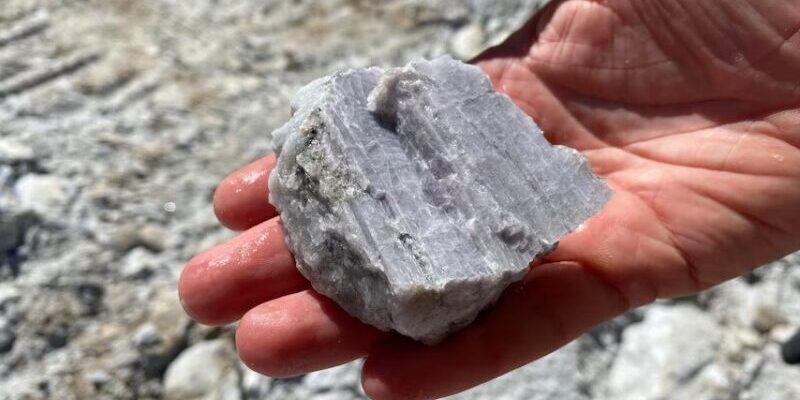
ACCRA — Australia-based miner Atlantic Lithium has appealed to the government of Ghana for fiscal concessions to keep its Ewoyaa lithium project viable, as falling global lithium prices threaten to derail the West African nation’s first lithium mine.
“We’ve done the calculations, and the numbers just don’t add up,” said Ahmed-Salim Adam, Atlantic Lithium’s general manager, in an interview with Reuters.
“We have written to the Minister of Lands and Natural Resources for urgent fiscal assistance. Without this support, the project cannot proceed.”
Lithium prices have plunged more than 80% since their peak in November 2022, driven by a supply glut and slower-than-expected global adoption of electric vehicles (EVs).
Ghana, Africa’s leading gold producer, granted Atlantic Lithium a 15-year lease to develop the Ewoyaa mine, initially planned to begin production by late 2024.
The project was expected to take advantage of the growing demand for EVs.
With an estimated resource of 35 to 40 million tonnes of lithium-bearing ore, the Ewoyaa project could become one of the top 10 global producers of spodumene concentrate, according to Atlantic Lithium.
The project is set to produce around 360,000 tonnes of lithium annually, with exports destined for the U.S.
However, construction has stalled due to delayed parliamentary ratification, and the recent collapse in lithium prices has further complicated the project’s viability and development timeline.
Despite a recent recovery in prices, driven by a rebound in global automotive production, analysts remain cautious.
“While EV-led demand growth remains strong, it is being overshadowed by mine supply growth,” said Tom Price, head of commodities at Panmure Liberum.
Price also noted that U.S. tariffs under former President Donald Trump have dampened the prospects for the sector.
West Africa’s recent entry into the lithium market also means that investors may prefer to stick to established markets when prices are weak, Price added.
Atlantic Lithium’s appeal to the Ghanaian authorities highlights that the internal rate of return for the project has dropped from an initial 105% to just 13.6%.
“Nobody is going to invest in that. It should have been 30% for the project to make sense,” Adam said.
Concessions Sought
To salvage the project, Atlantic Lithium is requesting several fiscal adjustments, including a reduction of the royalty rate from 10% to 5%, aligning it with Ghana’s gold mining sector.
The company also proposes implementing a sliding royalty scale linked to lithium prices and revising the 32.5% corporate income tax rate.
Additionally, Atlantic Lithium is seeking the removal of import duties on capital equipment.
Since 2016, the company has invested $70 million in the project but now faces “significant challenges” that threaten to halt progress. As a result, the miner has scaled back operations, laying off 25 employees in October and planning to dismiss approximately 50 more by May.
“We will maintain only a skeletal team,” Adam said.
While parliamentary ratification remains crucial for the project’s progress, Adam emphasized that construction cannot begin without addressing the fiscal framework.
“Even if we get ratification done, we can’t get it off the ground,” he concluded.





